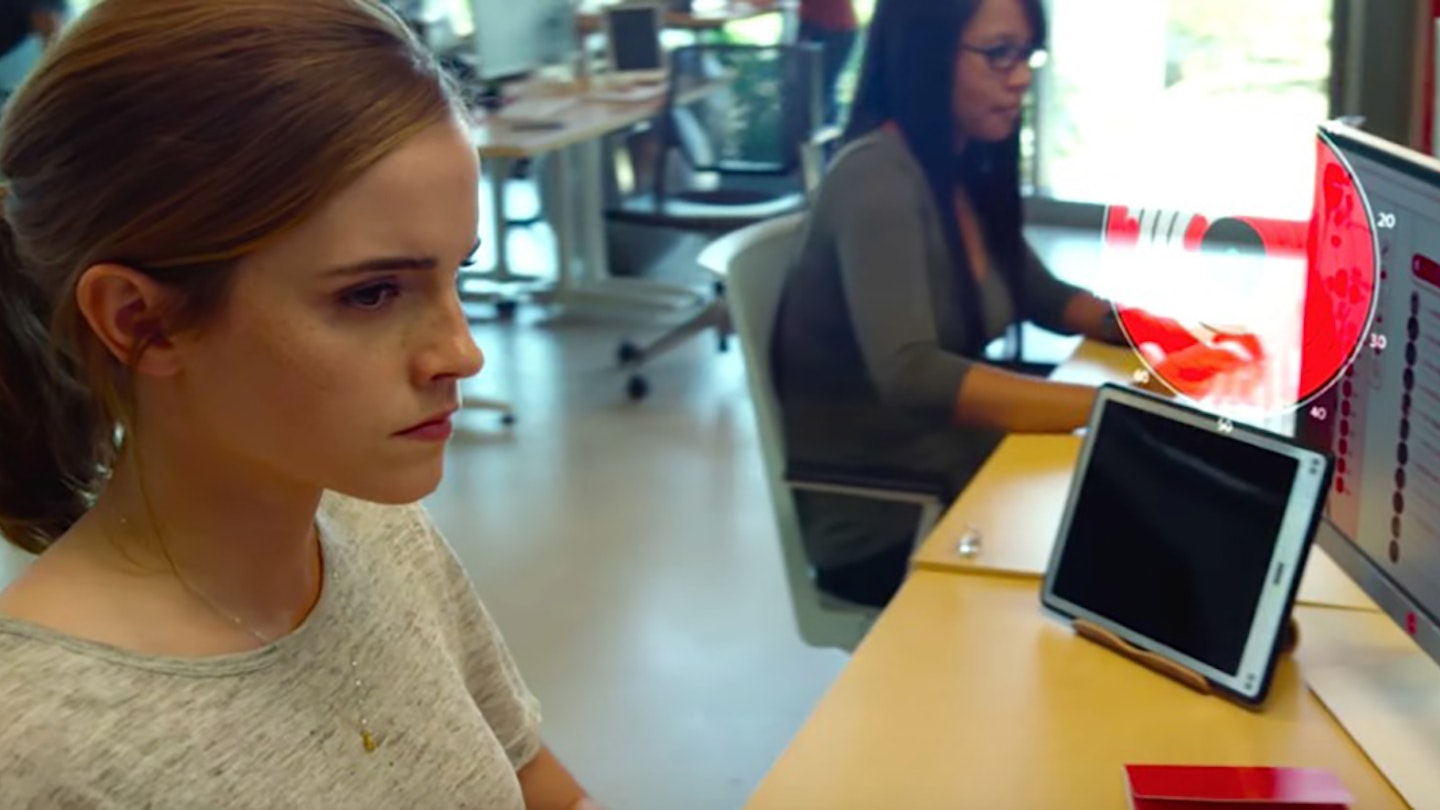Are we being spied on through our technology as more and more of our privacy is willingly stripped away from us? Such is the seed behind David Eggers' 2013 novel from which the film The Circle has been adapted.
Co-written by Eggers and director James Ponsoldt, the film focuses on Mae Holland (Emma Watson), who is hired by The Circle, the most prominent Internet company in the world, which was co-founded by Tom Hanks' Eamon Bailey and Patton Oswalt's Tom Stenton, with technology pioneered by John Boyega's Ty Lafitte. As she grows more successful there, Mae agrees to let her life become completely transparent — on view to anyone interested in checking it out, 24/7. Notes the film's official description, Mae "finds herself in a perilous situation concerning privacy, surveillance and freedom. [She] comes to learn that her decisions and actions will determine the future of humanity."
As we can't worry about all of humanity at the moment, we have sat down with Ponsoldt to discuss the film.
From your point of view, what do you think the film says about us as a society now and where we're heading?
Hopefully the film, like the book, asks questions of us about how we're living our lives now and where we want to go. I realize that sounds generic, but I think in the history of speculative or science fiction, or plain old '70s conspiracy films, we always assumed that we would be monitored by men in black suits jumping out of vans and helicopters following us. The government stealing our information, which in some cases wasn't too far off. I think the irony of modern life is that our data, our highly personal information, has been taken from us, but in many cases it was given away freely by us. We willfully, consciously or unconsciously, acquiesced and gave it away for a new app, you know? For the products that we have. We didn't read the fine print, or don't even really care and didn't really check to see if we could opt out. No one had to steal it from us.
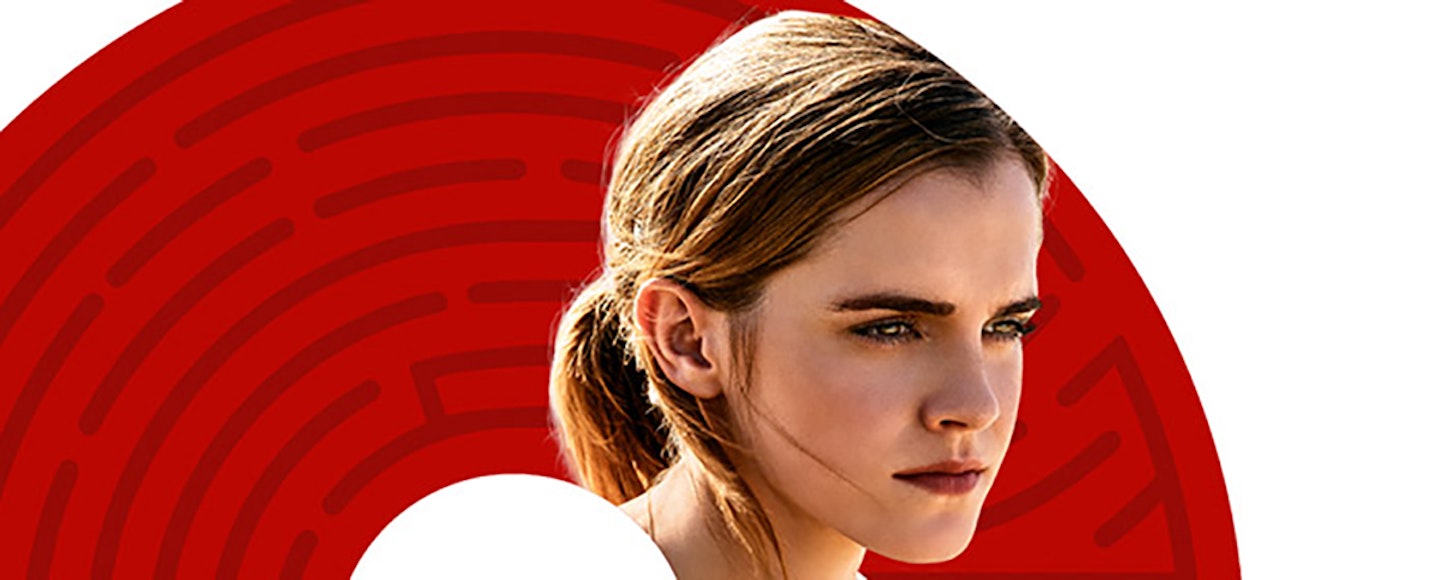
I guess, depending on your personal feelings about your own privacy, maybe that's fine. Maybe one feels like they don't have secrets, they don't work for the government, so why should they care that their TV or their phone or their computer are watching and recording them? As long as there are ethical people at the heads of these companies, that's a non-issue I guess, but one could, and the film speculates a world where, say, an election was privatized and that exact same information was available to unethical or unscrupulous leaders. If we can only imagine.
Who could ever imagine such a thing?
Exactly. Also, we live in a time when there are tech companies that have an unprecedented accumulation of power, wealth, and information with basically no competition. It's not in their nature to self-regulate, to break themselves up, or ask for less information. It's only in their nature to grow and gain more information from us, because the more that they know about us, honestly the better they can market to us and sell to us and make us better consumers.
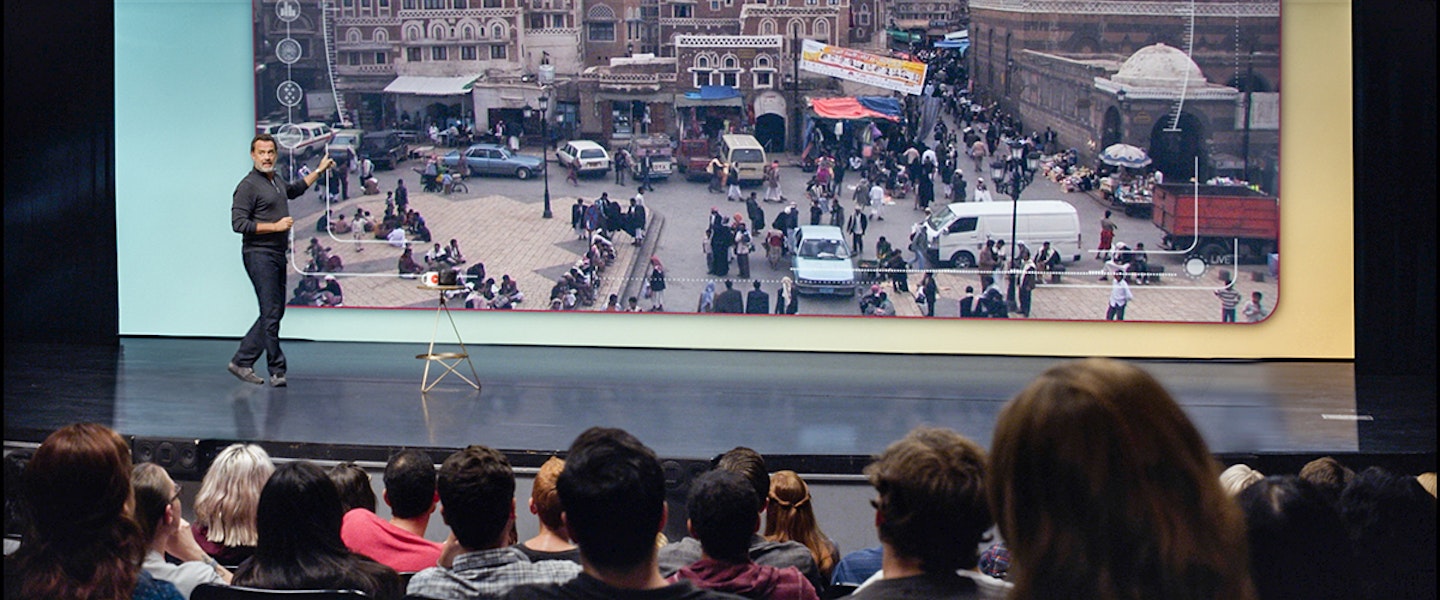
It is frightening when you see the President Of The United States sign orders that will allow our privacy in a sense to be given away to companies.
It seems Orwellian and unthinkable and then in the maelstrom of insane, bad legislation that's come about in these past 100 days, it goes by without much notice, where it's like, "Oh yeah, by the way, whatever you're paying monthly for internet service, it was just made legal for those exact same people to make your entire search history available to the highest bidder." It seems absolutely inconceivable and unethical. It's an insane reality that we're living in.
Do you feel The Circle is perfectly timed as a red flag for where we're going?
I think it's definitely where we're going and I don't know that that time is going to pass anytime soon. Do you know what I mean? A lot of things, whether it's Brexit, the U.S. election, things that are happening on Facebook Live, the way that Twitter in many cases was weaponized, obviously for good but then obviously for bad, for proxy. Governments who use it to troll and give voice to conspiracy theories, white supremacists, et cetera. I think that's not going away. We're seeing it in elections in other countries. We're seeing all of these things are coalescing and I don't know what comes next, but I have to think it's going to be this and then more and then more and then more.

We certainly don't have the ability to take a step back in an easy way. I don't know what that would look like. Nor, by the way, would I suggest that we could, or maybe should. I'm not a Luddite or a technophobe. I love the technology in my life, but the implications of what it could mean are pretty upsetting.
We both love our techology, so in some ways it's easier to close your eyes and just click rather than worry about the implications.
In the film there's a character played by Ellar Coltrane who's a 25 year old neo-Luddite who works with his hands; he makes deer antler chandeliers. He's a hipster who critiques The Circle and what it stands for in a way that many of us would. That being said, I don't think his position is tenable or sustainable either. It's out of step with modern life. Technology's too integrated in every aspect of our life to ask your friends and family and community to step back from it.
Innovation, sending civilians to outer space, mapping the mind, curing cancer — all these things, they're great. Who would argue with that? Obviously these same companies are also making a lot of money and accumulating a lot of our data at the same time, which seemed like independent things and one is beneficial and one is problematic for us as individuals, but in the rush of the new I think a lot of the philosophical, ethical, moral, and legal questions don't get asked in time. It's not in our nature to pause, sit, meditate, question, debate. We move forward. Technology generally answers itself with more technology.
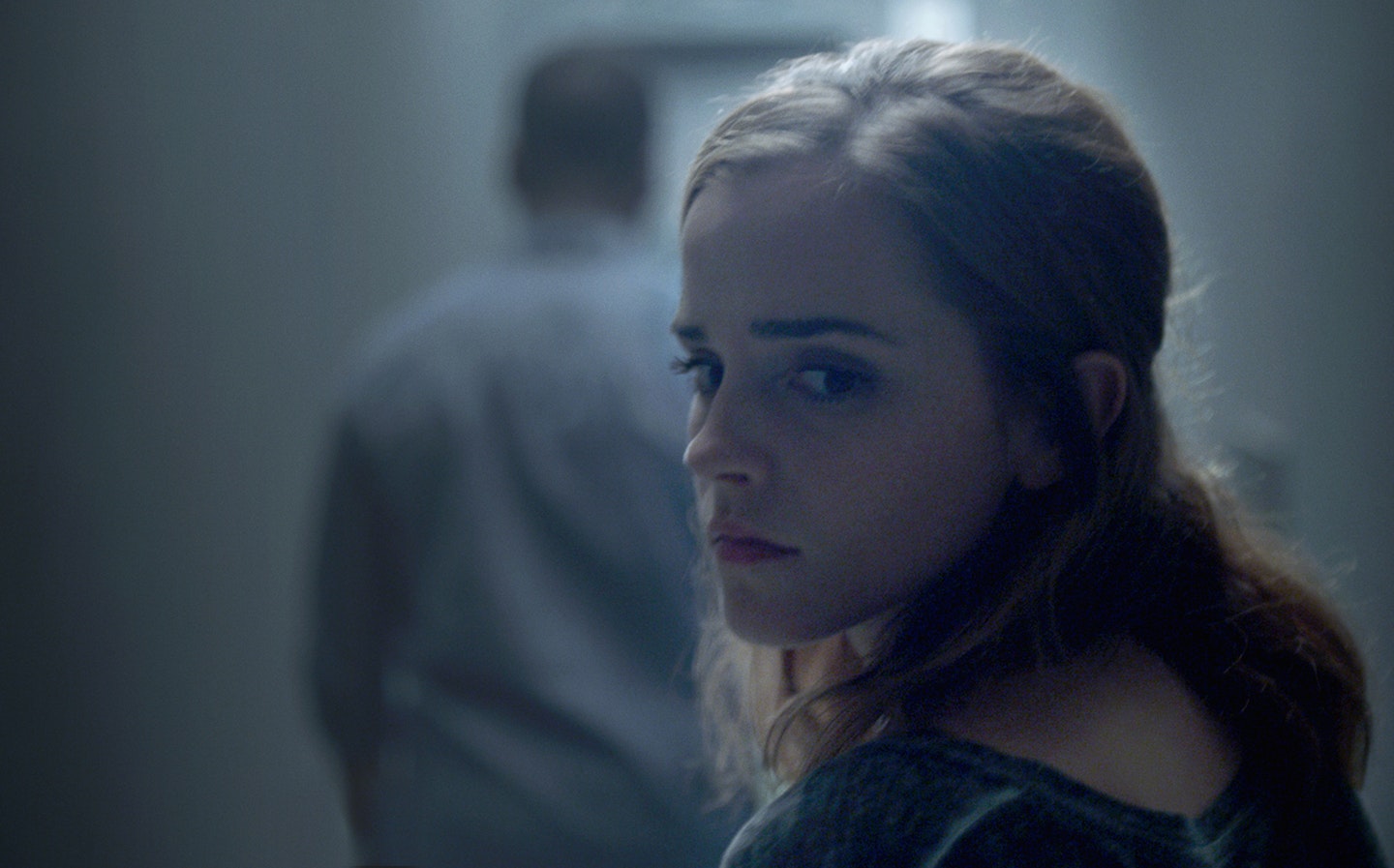
Every film is challenging, there's no question about that but was there anything particularly challenging about taking the novel and translating it into a film?
Any novel is a big, unwieldy collection of ideas. A very, totally literal adaptation of Dave's novel would have probably made a ten-hour miniseries and maybe a very good one. A lot of it was choosing what to focus on, what to streamline. There were exciting things that lent themselves to being visual, like the zings that are described in the book that Mae ... she constantly has this Greek chorus of people, after she goes transparent, chiming in on her. That lent itself to something that would be really novel and fun to visualize as treating these things like a Greek chorus of lightning bugs or lens flares that constantly go around her and create a visual wall. That was a fun thing.
The thing that was harder to articulate, that you can't quite see, is the sense of unease and angst that Mae feels that's creeping; psychic sadness, loneliness. Feeling that she's letting everyone down by not, in some cases, just replying to their emails soon enough. By not making herself as available as she should be. Wondering if she's closed off. That feeling, that mind-numbingly crazy-making feeling that I think we've all felt, if we just realize that for whatever reason at this moment in time, it's not possible for us to not check email all day or not reply to phone calls.
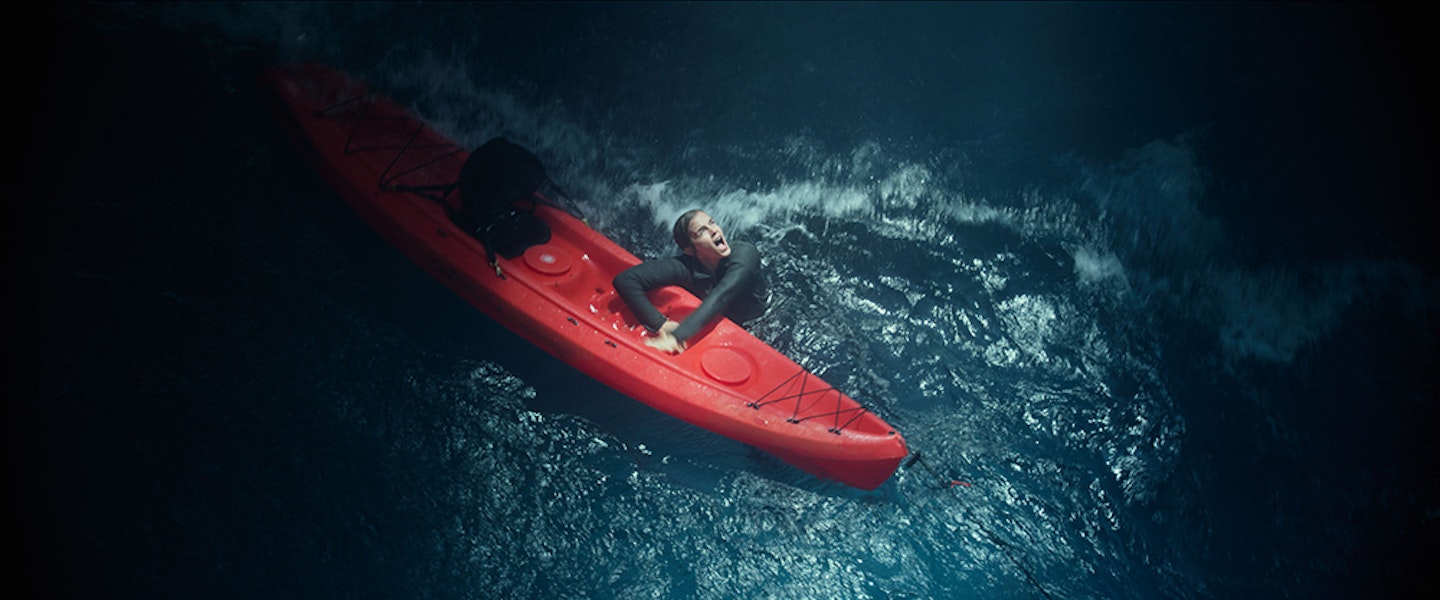
That feeling that you're a bit of a slave to it, which can make one feel powerless. That was a feeling that I wanted to evoke in the film. To get there, I think, was the hardest, most ephemeral thing to try to hone in on.
The other thing is that Dave's book is funny. It's darkly funny. It's a satire. Truly awful things happen in it. I wouldn't say comically awful, but things that are as bad as you could imagine. Not just, "I'm having a bad day," but cataclysmic, tragic events happen in it that are the stuff of drama and genre and things like that, but hopefully there's enough distance that the audience can engage with the story and have some fun with it and not just feel like they're getting a polemic or having someone giving them medicine.
Obvioulsy you started with your script, but how did things change once you cast people like Emma Watson, Tom Hanks, Patton Oswalt or John Boyega?
When you cast great actors, you're casting them for their minds. For their imagination. Obviously they're natural in front of a camera, they have an innate charisma, they look right for the role, whatever it is, there's that. Actors like Tom Hanks, who has been consistently doing great work and great films over decades, is not doing so by accident. It's because he knows how to read a script, or how to read a scene, how to understand a character and bring tiny moments of surprise to it. Or just knows how to deliver on what the unique pleasures are of that character and that story.

Once I know who the actor is, I love talking to them long before we get to set and hearing their ideas and hear what they found interesting, what they found to be honest, what they found to be maybe dishonest and not working and understanding why. Perhaps helping me recognize my own blind spots and biases and seeing their perspective on things and really trying to treat them as a collaborator and incorporate them.
Emma grew up in front of our eyes in the Harry Potter films. In a sense, is that similar to Mae in that we're watching every aspect of her life over the course of the film?
So much of the people that work at this tech company are roughly Emma's age and they would have grown up watching Hermione Granger. Emma has a unique knowledge of what it's like to have a very blurry private/public life. You know what I mean? She can't just go eat a chicken sandwich with friends in public in an ordinary, unobserved way and she knows what that's like.
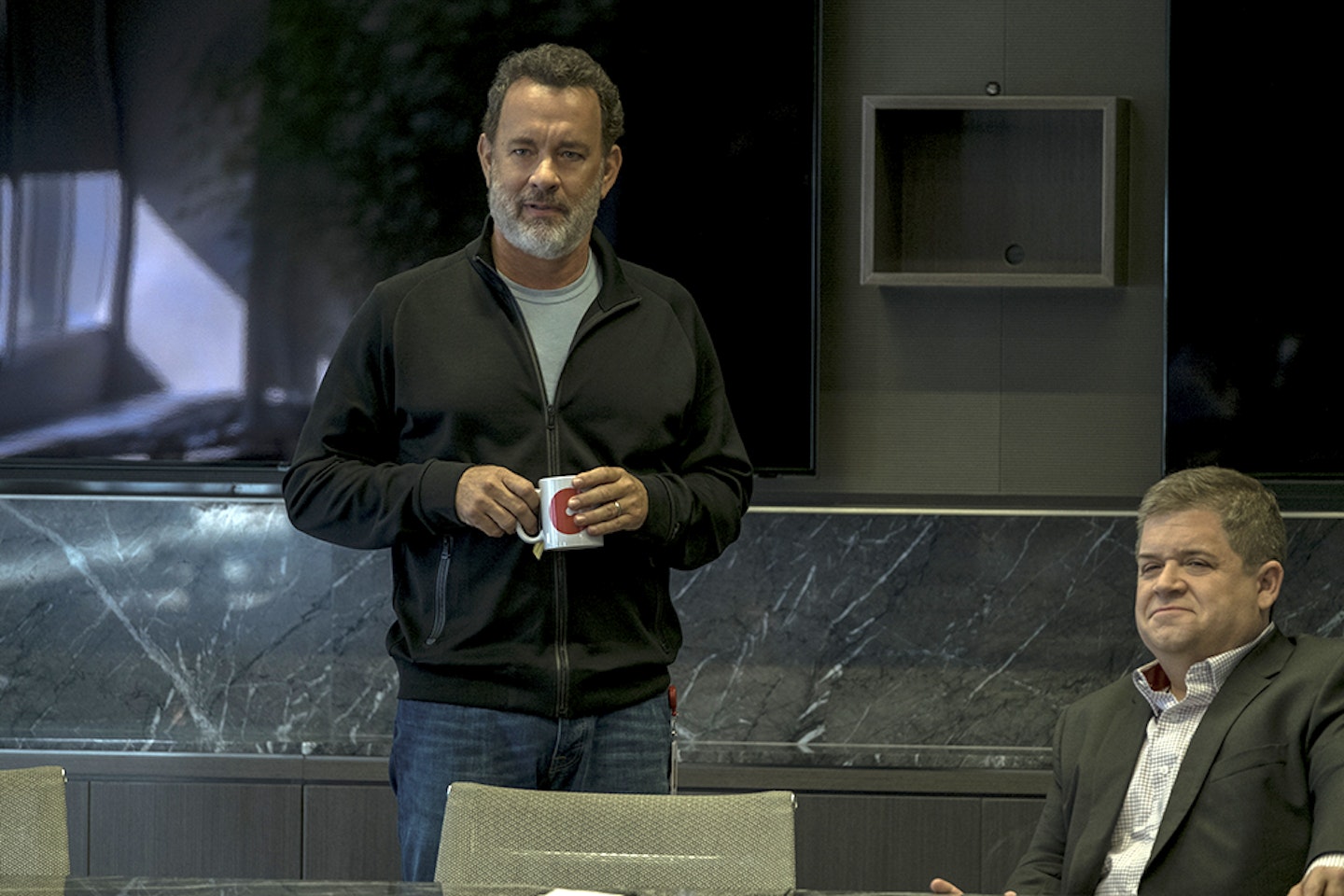
In a very different way, Ellar Coltrane grew up in front of the camera, too, although all in one film [2014's Boyhood]. I think the relationship that we have to those people that we've spent time with in front of the camera is a really unique one where we think we know them in a way that, for them, can probably be hugely invasive and creepy.
You brought up the seventies conspiracy films, Three Days Of The Condor and that type of thing, but also, more recently, Enemy Of The State comes to mind. There's one where the government is all-pervasive. How tough was it, then, to give this film a unique visual style?
For me, those seventies paranoid conspiracy films like Three Days Of The Condor and The Conversation, those were definitely reference points. There were more contemporary films that I think are character studies that have a more slow-burning sense of unease. Films like Safe, the Todd Haynes film; and To Die For, which I really loved.
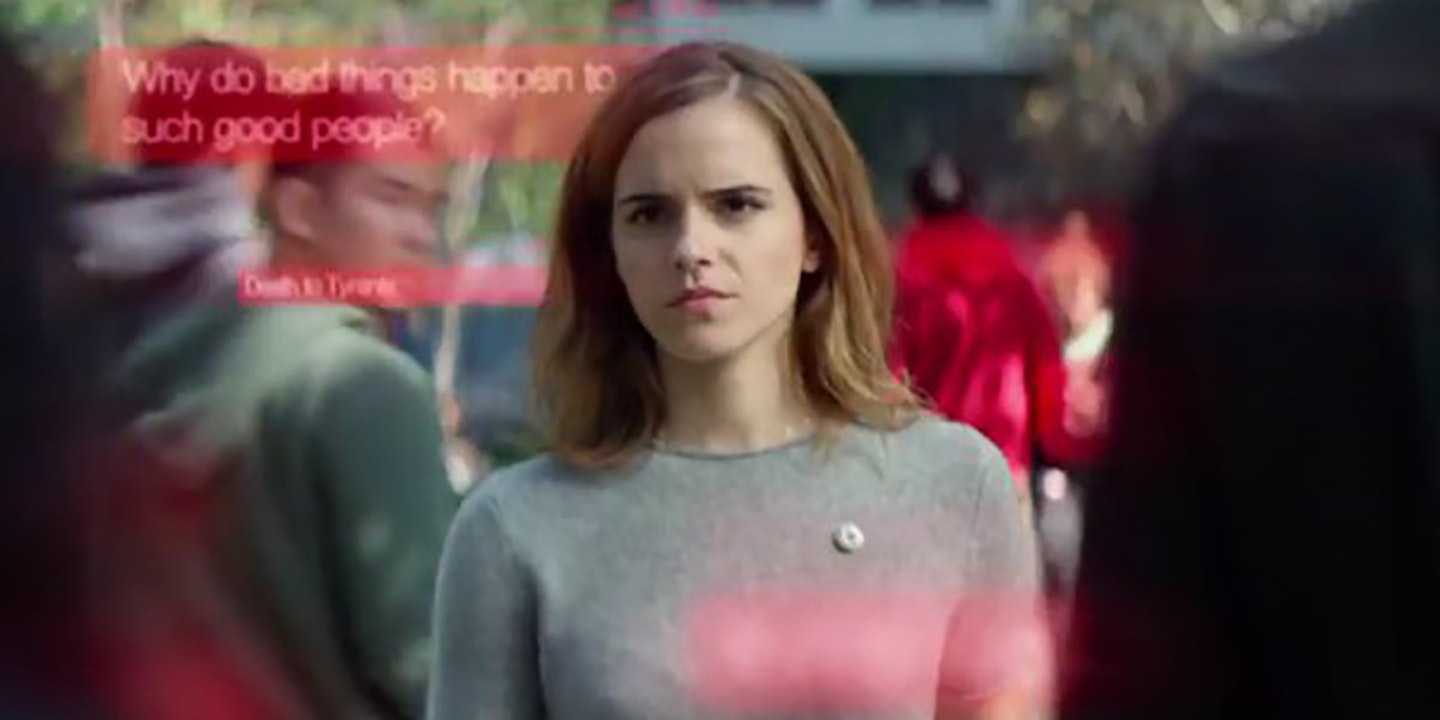
Mae, before she goes into The Circle, is just in a small town in central California with her parents. It's. pretty classic and formal and quiet, but once she went into that world, I think Mattie Libatique, our cinematographer, and I hardly ever stopped moving the camera. We wanted the world to have a kinetic flowing energy and also one where it felt like one can be watched from any and every angle. And as far as the design of the world, we wanted to have a poppyness and a colorful palette and a brightness that feels more youthful and idealistic and perhaps aiming towards Utopianism. If not pushy Utopianism, then just purely dystopic black and white where the creeping invasiveness comes with a smiling face and dimples.
